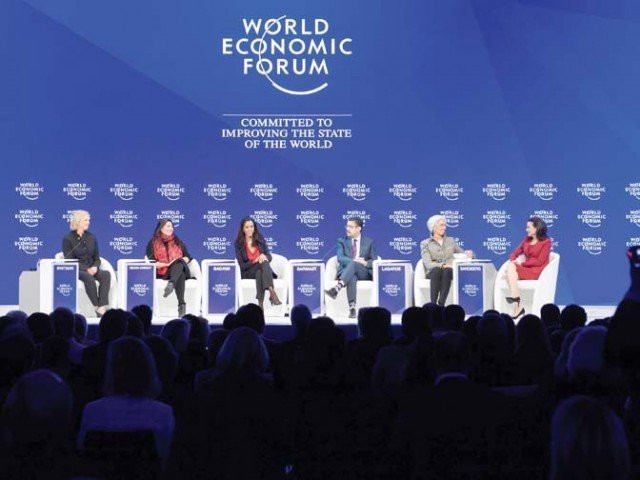Advocates not optimistic about fair global tax system at Davos
They labeled measures that European Commission and individual countries have taken as insufficient to curb tax evasion

PHOTO: FILE
During a session of the 48 Annual Meeting of the World Economic Forum, panelists like Nobel Laureate Joseph Stiglitz and Oxfam Executive Director Winnie Byanima labeled the measures that the European Commission and individual countries have taken so far as insufficient to curb tax evasion.
Big cheating nations like Ireland, The Netherlands and Switzerland have not been nabbed yet, according to them.
PM Abbasi, Gates talk social reforms at WEF
The situation in Europe –that is it biggest advocate of a fair tax system, is not much different from any developing country like Pakistan, as the critics questioned the credibility of the black list maintained by the Organization for Economic Cooperation and Development of the non-cooperative countries.
In Pakistan also, the Federal Board of Revenue, Securities and Exchange Commission of Pakistan and State Bank of Pakistan did not even take a single meaningful action against over 400 Pakistanis whose names had been surfaced in Panama leaks. Not even a single man was taken to task even after two years of Panama leaks that subsequently became a reason for political instability in the country.
The panelists spoke to the session moderated by France 24 Channel on ‘Beyond Paradise Papers: Can Global Tax Avoidance be Stopped’. The global tax avoidance has been estimated at $240 billion and yet the Paradise papers showed that the tax system is broken.
The tax system is undergoing changes, as the US has cut the tax rates and the other countries are trying to take taxes from digital companies.
Oxfam’s Executive Director Winnie Byanima said, “The OECD black list is a step in the right direction but it consisted of small and developing countries like Namibia.” Serious tax havens and dodging countries like the Netherlands and Switzerland are not there, she added.
She also questioned the credibility and impact of the list. Ireland that has been accused of damaging the tax governance structure in Europe is also not on board of the OECD’s country by country reporting initiative.
We want to see stronger commitments and big steps as measures and lists like these are baby steps, said Byanima. “Those who have cheated the most have not been sidelined,” Byanima added. The issue of tax avoidance is not about only some countries but it is a human rights issue.
But Pierre Moscovici, Commissioner for the Economic and Financial Affairs and Taxation of the European Commission admitted that the OECD’s decision to take out eight countries from the black list did raise question of credibility. However, he clarified that the countries were excluded after they made commitments to better tax governance. These countries will remain on the grey list and if they don’t deliver on their commitments, they will be put back on the black list.
Panama has taken commitments and if it does not honour, the Panama will be put on the black list, said the commissioner. He also agreed that these commitments must be made public and the violators must be punished with sanctions.
Finance Minister of Ireland Pascal Donohoe said that low tax rates in his country were aimed to attract jobs and to maintain competiveness. He argued that that the affairs of the individuals with tax authorities should remain private; therefore, the country by country report initiative should not be made public.
Noble prize winner Joseph Stiglitz said that the panama papers and paradise papers have brought home the importance of the illicit activities that people are hiding. He added, “The real problem with global tax system was that it allows people to legally avoid paying taxes. Unless we fix tax systems, we would not have money for infrastructure, claim change initiatives and ending poverty.”



















COMMENTS
Comments are moderated and generally will be posted if they are on-topic and not abusive.
For more information, please see our Comments FAQ